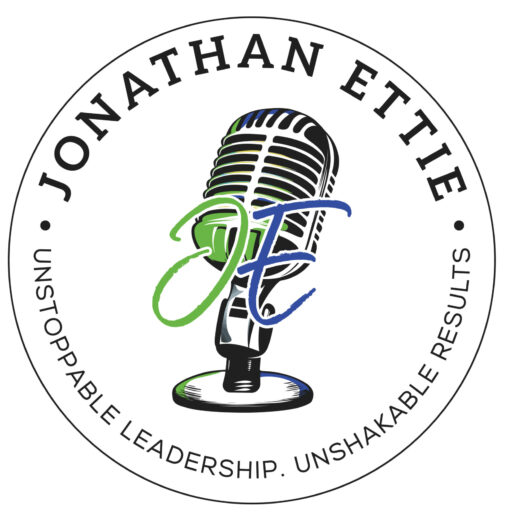
Have you ever had a coach? Someone who asked you hard questions to challenge your thinking and to help you learn?
What about coaching yourself? I don’t think you need another person in your life to be your coach. You can be your own coach by adopting a journaling and self-coaching habit where you regularly ask yourself hard questions that keep you honest with yourself.
Even better, you can leverage the power of AI to generate a self-coaching script. This script will give you questions to answer in your journal that will stimulate your learning and will hold you accountable to your goals and responsibilities.
The Value of Self-Coaching
Self-coaching helps you better understand your thoughts, emotions, values, and behaviors. This awareness is essential for making intentional decisions and breaking unhelpful patterns. By asking yourself the right questions, which are sometimes the hard questions, you can learn more about your strengths and weaknesses.
Self-coaching also builds independence and confidence. By learning to guide your own thinking and actions, you become less reliant on external validation or direction. You trust yourself more and become your own best advocate.
A self-coaching habit promotes consistent growth. It encourages regular reflection and goal setting. Instead of waiting for outside feedback, you actively assess progress and adjust strategies – leading to steady improvement over time. For example, you could regularly review your progress in attempting to write compelling blog articles. If you aren’t getting the responses you are hoping for, you can change your approach.
Self-coaching also improves decision-making. When you coach yourself, you ask better questions, challenge assumptions, and weigh your options more effectively. This clarity leads to smarter, values-aligned decisions.
You also experience increased focus and accountability. Self-coaching keeps your priorities front and center. You define what matters, track your own progress, and hold yourself accountable – without waiting for others to push you.
Leveraging AI For Self-Coaching
I find that I don’t always know what to ask myself when I sit down for a self-coaching session. To break my writers block, I leverage the power of AI to generate self-coaching scripts to help me have something to write and think about.
For example, you could ask ChatGPT the following question: Give me a self-coaching script that asks me the hard questions about focusing on my priorities and achieving my goals.
When I asked ChatGPT this question, it generated the following script for me:
🧭 Self-Coaching Script: Confronting Your Focus & Follow-Through
🔍 Objective: Hold yourself accountable, eliminate distractions, and realign with what truly matters.
1. What Really Matters?
- What are my top 3 priorities right now?
- Are these priorities aligned with my long-term goals and values—or just urgent distractions?
- If I only accomplished ONE thing this week, what would make the biggest difference?
✍️ Note: If you’re unclear on your priorities, you’ll keep getting pulled in every direction.
2. Am I Wasting Time or Energy?
- Where am I leaking time, attention, or energy every day?
(E.g., endless scrolling, reactive tasks, procrastination, busywork.) - What am I saying “yes” to that’s costing me what matters most?
- If someone followed me around for a week, would they clearly see what I say my priorities are?
💬 “Your calendar and your results reveal your true priorities—not your intentions.”
3. Am I Being Honest with Myself?
- What excuses am I making for not working on my goals?
- What am I avoiding that I know I need to face or finish? Why?
- Am I waiting for motivation instead of relying on discipline?
- Am I mistaking motion for progress?
(E.g., planning, researching, or talking about goals instead of doing the work.)
🎯 Hard truth: If you want different results, you need different actions.
4. What Needs to Change—Now?
- What specific habits or patterns are holding me back?
(E.g., checking email first thing, skipping focused work blocks, avoiding discomfort.) - Where do I keep falling off track—and what system or structure would fix that?
- What one habit, if I started doing it consistently, would make everything else easier or unnecessary?
🔁 You don’t need a new plan. You need relentless execution of the one you already have.
5. What Does Full Commitment Look Like?
- If I were fully committed to my goals, what would I be doing differently—starting tomorrow?
- What uncomfortable action am I avoiding that would show real progress?
- How would the future version of me—who has already succeeded—handle today?
- What am I willing to give up to get what I want most?
🚪 “Discipline is choosing between what you want now and what you want most.”
6. Recommit with Clarity
Finish by writing or speaking your recommitment:
“I’m done making excuses. My goals matter. My time matters. I will act in alignment with my priorities starting now.”
Optional Add-On:
Journal Prompt
“This week, I will prove to myself that I am focused, disciplined, and capable by…”
(Fill in the blank with one specific goal or priority.)
Using Your Script
I encourage you to use the script I included above, or to use ChatGPT to generate a script of your own. The best way to do is with pen and paper. Or you could copy the script into a new document in a program like Microsoft Word and then answer the questions electronically.
When answering these questions be honest with yourself and think through your answers carefully. An even better approach is to create action plans based on your answers to these questions.
For example, if your answers to the questions in this script reveal something you are not happy with, plan to make a change to your habits and routines. You can schedule action items and update your goals based on this self-reflection.
The advantage of using AI is that it may ask you a question you may not have thought of asking yourself. It can also force you to be honest with yourself.
Conclusion
Coaching yourself can be a powerful thought exercise to help hold yourself accountable and to reflect on what you have learned. It can also help you to review your goals and to refocus on your top priorities. I do daily journaling and regular self-coaching exercises that help me to be more effective in life. I encourage you to do the same.
If you don’t know where to get started, I recommend leveraging the power of AI. Use ChatGPT to generate self-coaching scripts with questions that stimulate your thinking. This includes asking ChatGPT to give you the hard questions you need to ask yourself so that you are honest with yourself.


Leave a Reply